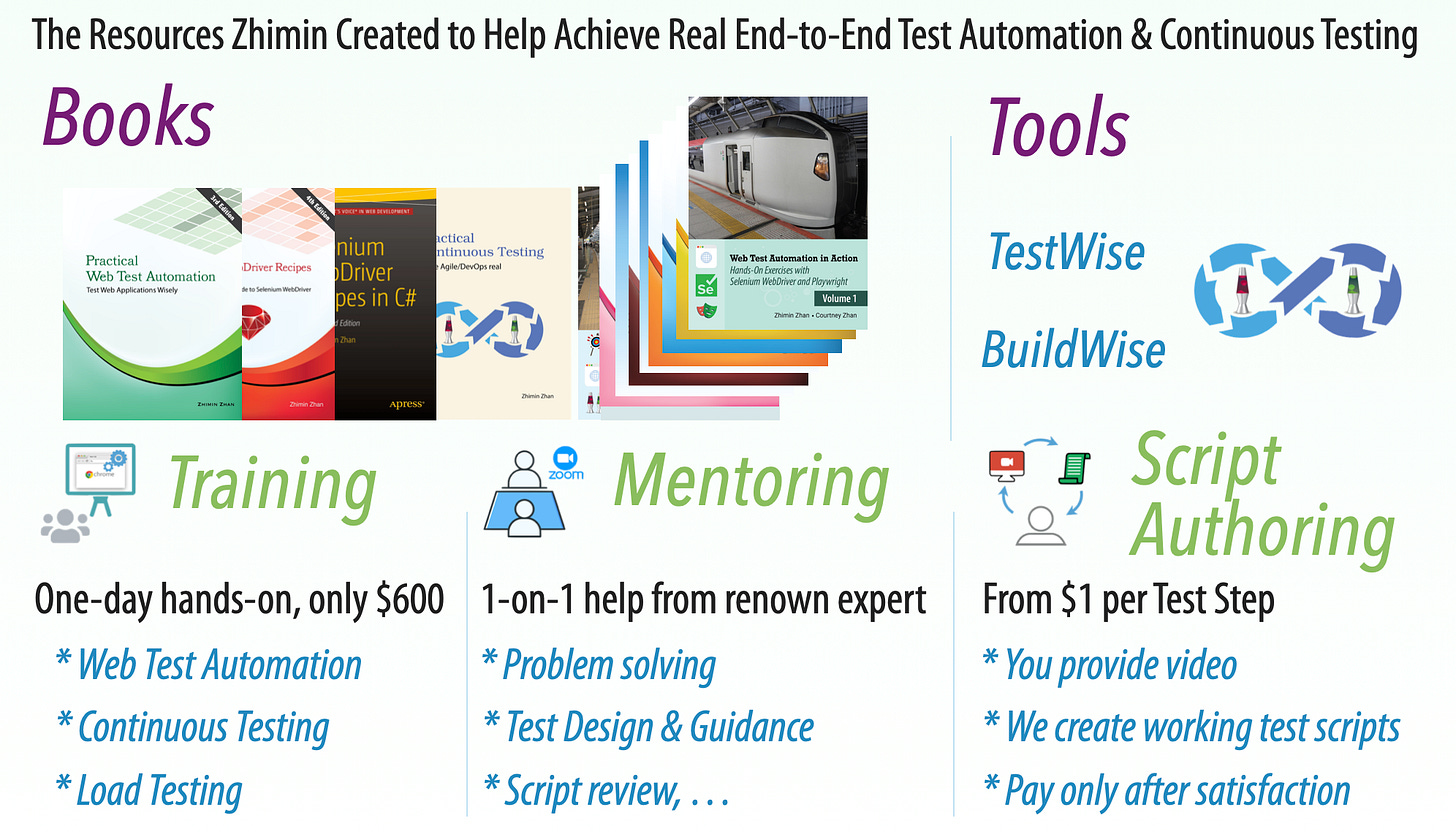A Well-Setup Parallel Testing Lab Can Handle Several Types of Software End-to-End Testing
This synergy leads to significant cost savings.
Automated End-to-End Testing comes in several forms, depending on the type of application:
Web Applications
Mobile Applications (Android & iOS)
Desktop Applications (Windows)
API Testing
The above fall under functional testing. Additionally, there are other types of non-functional testing:
Performance Testing (Web)
Load Testing (Web)
Black Box Testing Means …
A key attribute of black box testing is transparency — i.e. test scripts are entirely independent of the application code. This allows for:
Writing test scripts in a common scripting language
Using consistent test syntax frameworks
For example, my father has successfully used the RSpec syntax framework (Ruby) for the above types of automated testing across multiple applications for over a decade.
During my university studies and while writing my book Selenium WebDriver Recipes in C#, my father extended the BuildWise Continuous Testing Server to support test execution for:
JUnit (Java)
Microsoft Unit Testing Framework (C#)
PyTest (Python)
Mocha (JavaScript)
Playwright (TypeScript)
Additionally, BuildWise CT Server supports Cucumber (Gherkin-style BDD framework).
Important Realisations
In many software companies, automated test execution infrastructure — whether on-premise or cloud-based — is often set up separately for each type of testing or even for individual projects. This approach is costly and inefficient.
A well-setup parallel testing lab can be utilized:
For multiple types of automated testing.
By different teams within a company, regardless of the application’s programming language or the end-to-end test automation framework used.
This synergy results in significant cost savings while providing great flexibility.
Related reading:





